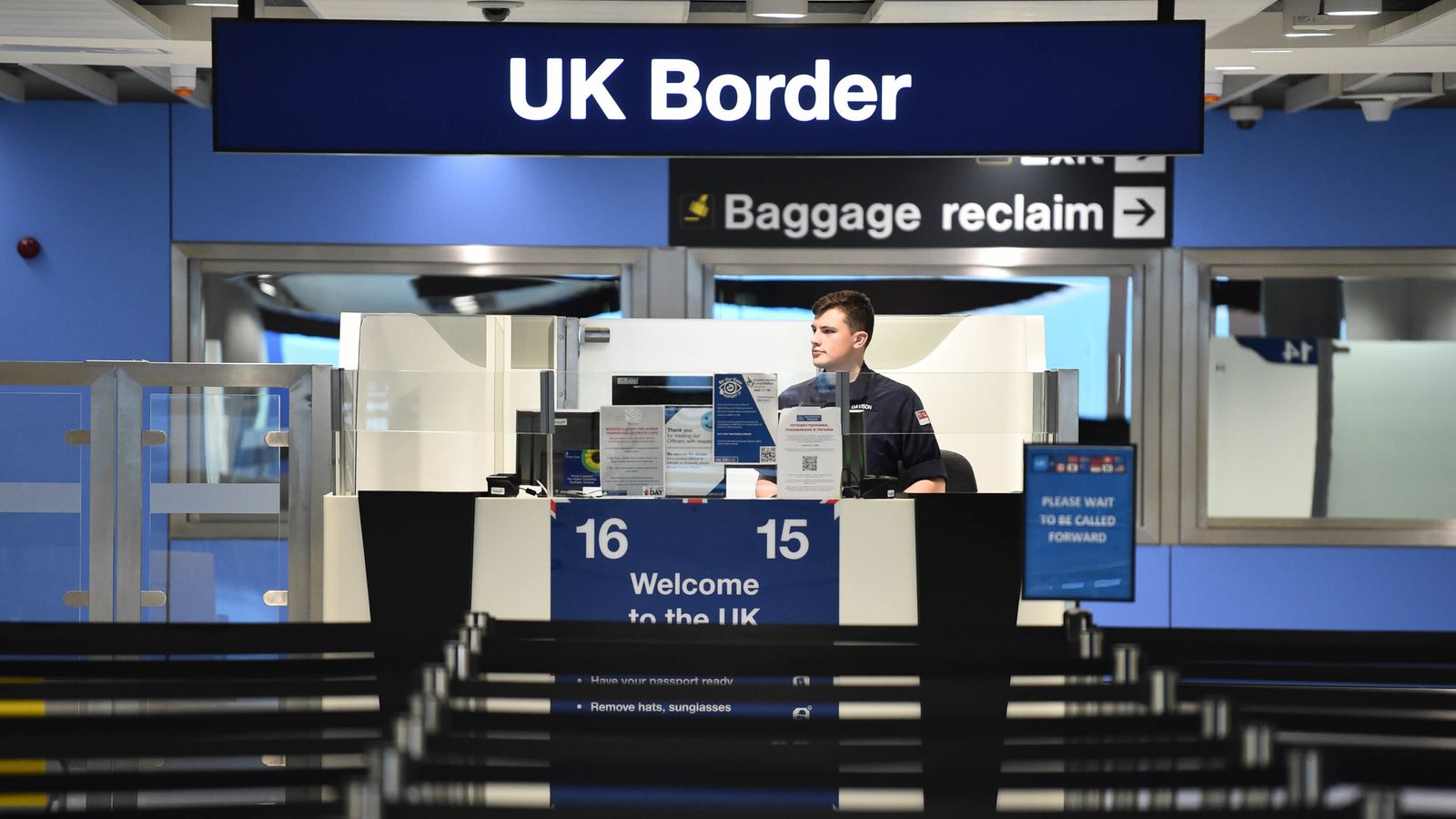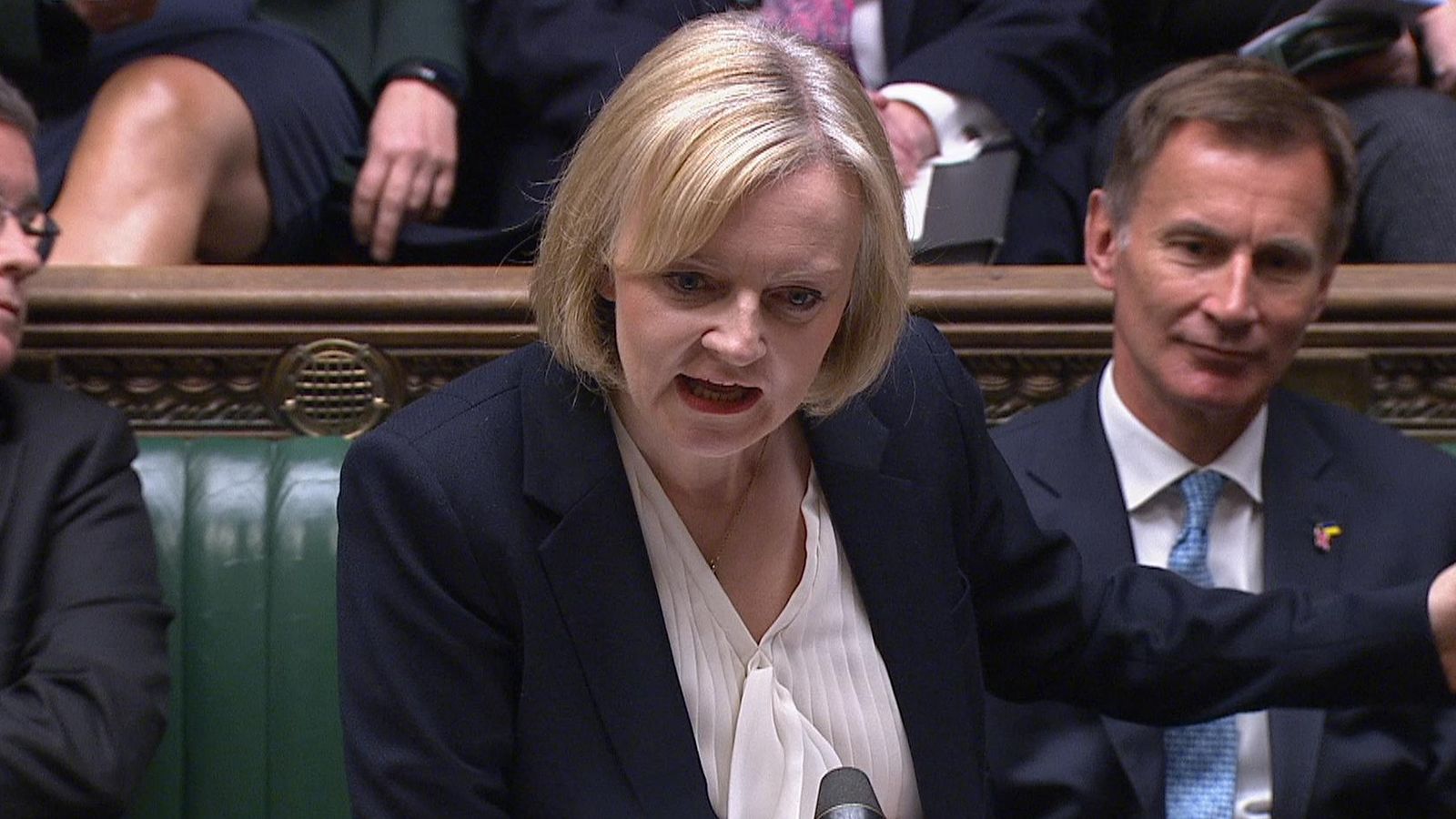Britain’s immigration system changes explained amid ‘biggest shake-up’ in 50 years


They’ve been billed as the “most sweeping asylum reforms in modern times” and the “biggest shake-up of the legal migration system” in nearly 50 years, but how are the UK’s rules actually changing?
One of the biggest changes will impact almost two million migrants already living in the UK while other proposals will affect people who come here in the future.
Here’s how…
How is ‘settled status’ changing?
Until now, migrants who live in the UK have needed to wait five years before they can apply to settle permanently but this qualifying period will double to 10 years – and some people could have to wait even longer.
Almost two million migrants will be affected by the changes.
Those “making a strong contribution to British life” will benefit from a reduced timeframe.
That means doctors and nurses working in the NHS will be able to settle after five years, while high earners and entrepreneurs may able to stay after just three years.
Migrants who speak English to a high standard and volunteer could also have a faster route to settlement.
At the other end of the scale, low-paid workers will be subject to a 15-year wait.
With this, the government is explicitly targeting the 616,000 people and their dependents who came to the UK on health and social care visas between 2022 and 2024 – the so-called “Boriswave”.
The government is going further still in targeting migrants who rely on benefits, quadrupling the current wait to 20 years.
There are also plans to limit benefits and social housing to British citizens only.
And though recognised refugees who came to the UK legally will still be eligible for public funding, they too will be subject to the 20-year timeframe.
How will asylum rules change?
Inspired by immigration policy in Denmark, refugee status will become temporary, lasting only until it’s safe for the person in question to return home.
This means that asylum seekers will be granted leave to remain for 30 months, instead of the current five years, with the period only extendable if they still face danger in their homeland.
Please use Chrome browser for a more accessible video player

2:02
Home secretary sets out migration rules
However, refugees will be eligible to settle sooner if they get a job or enter education “at an appropriate level” under a new “work and study” visa route, and pay a fee.
The government also plans to revoke its legal duty to support asylum seekers who would otherwise be destitute, a measure it says was introduced to comply with EU laws which Britain is no longer bound by.
Instead, support will be discretionary, and some people will be excluded – such as criminals, those who refuse to relocate, those who can work but won’t, those who are disruptive in their accommodation, and those who deliberately make themselves destitute.
Additionally, asylum seekers who have assets or income will be required to contribute to the cost of supporting themselves.
What about illegal migrants?
Meanwhile, illegal migrants and those who overstay their visas face a wait of up to 30 years before qualifying for permanent settlement.
But plans to bar criminals from settlement are still being figured out, with the government saying “work will take place to consider the precise threshold” at which someone is ineligible.
“The reforms will make Britain’s settlement system by far the most controlled and selective in Europe,” according to the government.
Alongside the new measures, plans are afoot to boost the number of migrants being removed from the UK.

What about illegal migrants who are already here?
A “one in, one out” agreement is already in place with France, under which those who cross the channel illegally are to be sent back, with Britain accepting instead a “security-checked migrant… via a safe and legal route”.
“This pilot is under way, and the government is working in partnership with French on expansion,” according to the government.
Furthermore, refugees will not have automatic family reunion rights, and the removal of families of failed asylum seekers is to be stepped up.
Read more:
Countries facing Trump-style visa ban under asylum reforms
Why Labour MPs are uncomfortable with the new asylum approach
Perhaps controversial are plans to offer financial support to those who agree to go voluntary.
The government argues this is “the most cost-effective approach for UK taxpayers and we will encourage people to take up these opportunities”.
Sanctions will also be imposed on nations that fail to cooperate on the return of their citizens, including suspending visas for that country.
And for those who are refused refugee status, the appeals process is to be streamlined, with one route of appeal, judged by one body, requiring applicants to make all their arguments in one go, instead of making multiple claims.
Please use Chrome browser for a more accessible video player

9:07
Inside Britain’s asylum seeker capital
Human rights legislation will be reformed too, in a bid to reduce legal challenges to deportations.
Finally, the number of arrivals accepted through “safe and legal routes” will be capped, “based on local capacity to support refugees”.
The reforms will not apply to people with settled status, and there will be a consultation on “transitional arrangements” in some cases.
The five-year wait for immediate family members of UK citizens remains unchanged, as it does for Hong Kongers with British national (overseas) visas.


